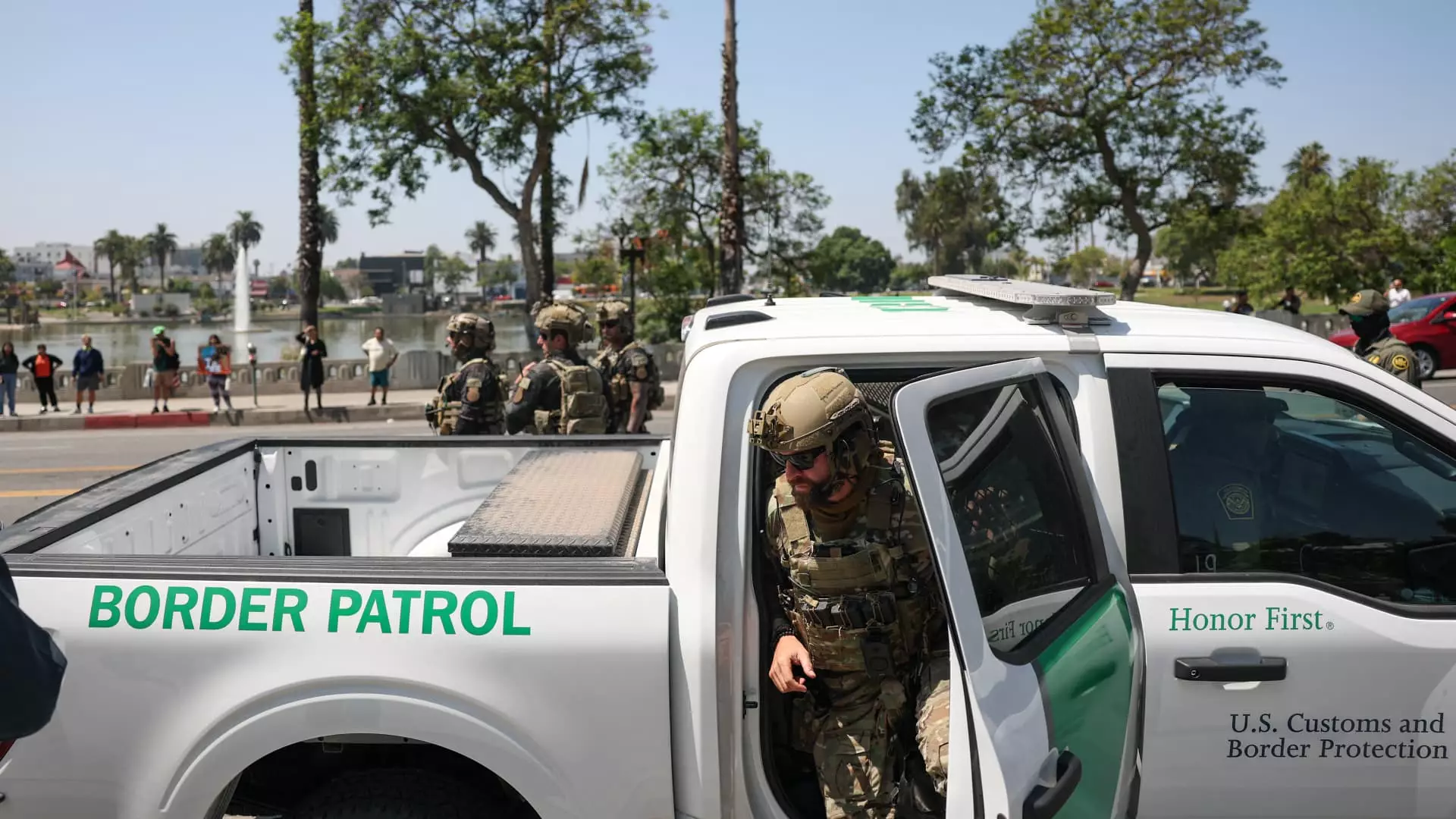In a striking display of judicial integrity, a federal appeals court decisively upheld a crucial restraining order that curbed the Trump administration’s reckless policing tactics in Southern California. This ruling doesn’t just represent a legal victory but a moral imperative—an affirmation that the Constitution must remain a safeguard against racial profiling and unchecked authority. The court’s decision signals a potent warning to an administration eager to sideline civil liberties for political gain under the guise of immigration enforcement. It’s a call to arms for those who believe in justice, dignity, and the rule of law, rather than blind enforcement that targets vulnerable communities based on flimsy stereotypes.
This decision confronts deeply troubling practices that, under the guise of immigration control, have devolved into racial profiling and constitutional violations. Federal agents—armed with minimal evidence—are rounding up individuals at random, capturing people based on superficial factors like skin color, accent, or occupation. This approach fuels fear, divisiveness, and racial injustice—ironic, given that America’s founding ideals are rooted in equality and justice for all.
The Ninth Circuit’s ruling recognizes the threat these tactics pose to the fabric of American democracy. It questions the very foundation of federal enforcement measures that hinge on bias rather than reasonable suspicion. The court’s sharp skepticism toward the government’s attempts to dismiss claims of systemic misconduct underscores the importance of safeguarding civil liberties, especially for immigrant communities most at risk of discrimination. The message is clear: authority without accountability is tyranny, and the judiciary will stand firm against any effort to erode constitutional protections.
A Deeper Look at the Implications
Beyond the legal nuances, this case exposes the moral failure of a policy that weaponizes fear and ethnicity as tools for enforcement. The federal government’s arguments—claiming they haven’t been given enough time or evidence—are superficial at best. What’s clear is that their approach relies heavily on racial and linguistic profiling, erecting broad, invasive stereotypes rather than targeted investigations based on probable cause. This approach not only undermines individual rights but also devastates communities whose only “crime” is their ethnicity or nationality.
The images of individuals like Los Angeles’ Brian Gavidia—who was forcibly detained while asserting his American citizenship—are stark reminders of the human cost of these policies. These are people who have integrated into American society, working, living, contributing, yet they are treated as suspects solely because of what they look or sound like. Such actions perpetuate a cycle of fear and alienation that erodes social cohesion. It is an uncomfortable truth that policies rooted in racial profiling threaten the very fabric of diversity and inclusion that should define the American identity.
Furthermore, the Justice Department’s reluctance to accept scrutiny exposes a troubling disregard for accountability. Their claims that they are not conducting arbitrary stops are contradicted by observable patterns and community testimonies. The use of stereotypes—particularly in a city as diverse as Los Angeles—is an evident attempt to justify unwarranted suspicion and detention. This approach not only violates legal standards but also threatens to create a society where fear replaces fairness, and suspicion overrides justice.
The Political and Moral Reckoning
This case underscores a critical moment for America: will we stand up for our constitutional values or continue down a path dictated by exclusionary, dehumanizing tactics? The court’s ruling is more than just an isolated legal victory; it is a moral stance affirming that enforcement cannot come at the expense of civil liberties. For a nation built on principles of equality and justice, tolerating policies that enable racial profiling and constitutional violations is a betrayal of American ideals.
Local leaders like Los Angeles Mayor Karen Bass have spoken boldly, framing the court’s decision as a victory for democracy and human rights. Her stance reflects a broader, centrist liberal perspective that prioritizes fairness and the protection of minority rights within the framework of law and order. It’s a reminder that security and liberty are not mutually exclusive but mutually reinforcing when properly balanced.
At the same time, the ongoing fight over immigration enforcement exposes the deep divisions within the political spectrum. While some push for strict, militarized approaches, advocates rooted in center-wing liberalism recognize that justice demands more nuanced, humane policies that respect individual rights and promote inclusivity. This case should serve as a catalyst for a broader reevaluation of immigration policies—policies that should be rooted in fairness, evidence, and a respect for the Constitution, not racial stereotypes and executive overreach.
The battle in Southern California encapsulates the broader struggle between authoritarian tactics and constitutional protections—an ongoing tension that defines America’s moral landscape. As courts stand up for civil liberties, it becomes clearer than ever: true security is built on justice, fairness, and respecting the dignity of every individual, regardless of their background.


Leave a Reply